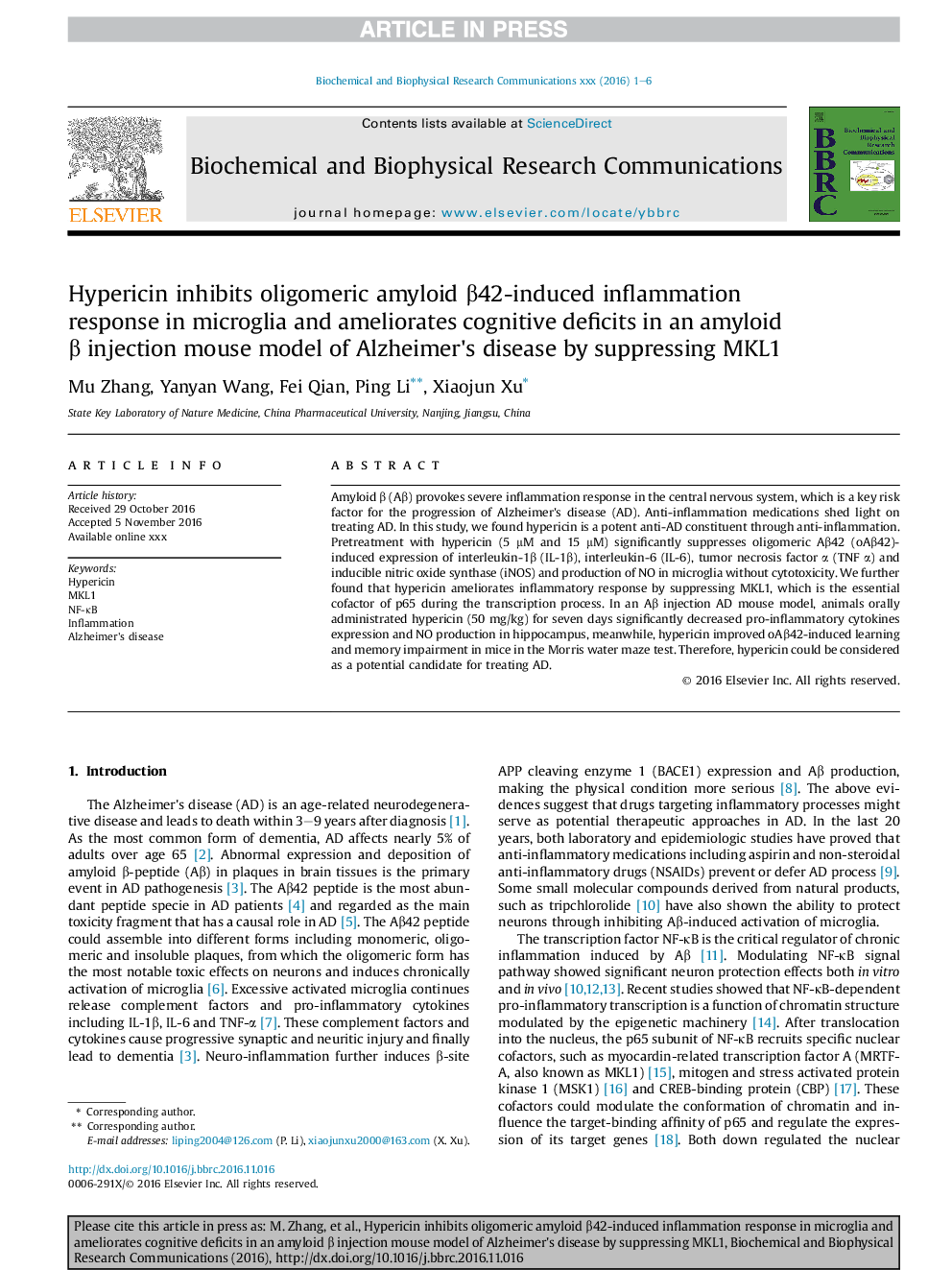| کد مقاله | کد نشریه | سال انتشار | مقاله انگلیسی | نسخه تمام متن |
|---|---|---|---|---|
| 5506475 | 1536767 | 2016 | 6 صفحه PDF | دانلود رایگان |
عنوان انگلیسی مقاله ISI
Hypericin inhibits oligomeric amyloid β42-induced inflammation response in microglia and ameliorates cognitive deficits in an amyloid β injection mouse model of Alzheimer's disease by suppressing MKL1
دانلود مقاله + سفارش ترجمه
دانلود مقاله ISI انگلیسی
رایگان برای ایرانیان
کلمات کلیدی
موضوعات مرتبط
علوم زیستی و بیوفناوری
بیوشیمی، ژنتیک و زیست شناسی مولکولی
زیست شیمی
پیش نمایش صفحه اول مقاله

چکیده انگلیسی
Amyloid β (Aβ) provokes severe inflammation response in the central nervous system, which is a key risk factor for the progression of Alzheimer's disease (AD). Anti-inflammation medications shed light on treating AD. In this study, we found hypericin is a potent anti-AD constituent through anti-inflammation. Pretreatment with hypericin (5 μM and 15 μM) significantly suppresses oligomeric Aβ42 (oAβ42)-induced expression of interleukin-1β (IL-1β), interleukin-6 (IL-6), tumor necrosis factor α (TNF α) and inducible nitric oxide synthase (iNOS) and production of NO in microglia without cytotoxicity. We further found that hypericin ameliorates inflammatory response by suppressing MKL1, which is the essential cofactor of p65 during the transcription process. In an Aβ injection AD mouse model, animals orally administrated hypericin (50 mg/kg) for seven days significantly decreased pro-inflammatory cytokines expression and NO production in hippocampus, meanwhile, hypericin improved oAβ42-induced learning and memory impairment in mice in the Morris water maze test. Therefore, hypericin could be considered as a potential candidate for treating AD.
ناشر
Database: Elsevier - ScienceDirect (ساینس دایرکت)
Journal: Biochemical and Biophysical Research Communications - Volume 481, Issues 1â2, 2 December 2016, Pages 71-76
Journal: Biochemical and Biophysical Research Communications - Volume 481, Issues 1â2, 2 December 2016, Pages 71-76
نویسندگان
Mu Zhang, Yanyan Wang, Fei Qian, Ping Li, Xiaojun Xu,